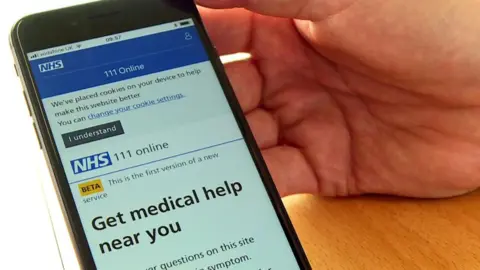ARTICLE AD BOX

 BBC
BBC
Plans for an upgraded NHS App to allow more patients in England to book treatments and appointments will be part of a package of measures unveiled by the government on Monday.
The changes will allow patients who need non-emergency elective treatment to choose from a range of providers, including those in the private sector.
Ministers and NHS leaders will publish this week what is described as an elective reform plan designed to speed up planned treatment.
But the British Medical Association (BMA) said there was a risk the policy would "discriminate or alienate" patients who did not have access to digital technology.
The plan will set out how the government intends to meet one of its key election pledges – for more than nine in 10 patients to have their treatment or be signed off within 18 weeks of a referral by the end of this parliament.
Currently fewer than six in 10 are dealt with in that time. The aim will be to reduce significantly the overall waiting list which stands at just under 7.5 million.
Health Secretary Wes Streeting said the move will shift the NHS "into the digital age" and help cut waiting times "from 18 months to 18 weeks".
The plans would "put patients in the driving seat and treat them on time", and they would be "put in control of their own healthcare", Mr Streeting said.
Action will also be taken to tackle missed appointments, which can be costly for the health service, including an artificial intelligence pilot to help pinpoint patients that may need extra help to attend.
The Department of Health said the NHS app would allow more patients needing non-urgent treatment to view and manage appointments.
The first step of the plan will come into force in March, when patients at more than 85% of acute trusts will be able to view their appointments on the NHS app.
Reminders would be sent out by hospitals to reduce the number of appointments missed. Diagnostic tests could be booked at specialist centres with the results coming through more quickly.
They will also be able to contact their healthcare provider and receive regular updates, including how long they are likely to wait.
Patients already have the right to choose where they would like their treatment, including in the private sector, but are not always told that. Details of NHS and independent providers will be made clearer through the app.
Some of these features are already available on the NHS app and a website Manage Your Referral. But officials say just 8% of bookings are made through these platforms.
Other plans include expanding a scheme for GPs to discuss some cases with hospital specialists before making referrals to ensure patients are treated in the right setting.
The current Advice and Guidance Scheme has resulted in 50% of cases being directed to more appropriate care rather than being put on long waiting lists and so reducing pressure on hospitals. These include some ear, nose and throat conditions.
GPs will also be able to refer patients with certain conditions directly for tests or scans without the need to see a consultant first. The aim is to reduce waiting times and remove those who are given the all clear from waiting lists.
Amanda Pritchard, chief executive of NHS England, said using technology would revolutionise access to healthcare and put "patients in the driving seat of elective care".
But the chair of the BMA council, Professor Phil Banfield, said the focus should be on patients most in need rather than a "wasteful obsession" with artificial targets.
He said there was a danger patients without access to tablets and smartphones would be alienated.
"We already have a two-tier health system – those who can and cannot pay to access care," he said. "We must guard against creating a third tier of the disenfranchised vulnerable".
Tim Mitchell, President of the Royal College of Surgeons of England, said a new plan for reducing waiting times would be very welcome. But he added the government would fall short of its target without further reform and investment "including upgrading IT and crumbling NHS facilities".

 5 months ago
30
5 months ago
30








 English (US) ·
English (US) ·